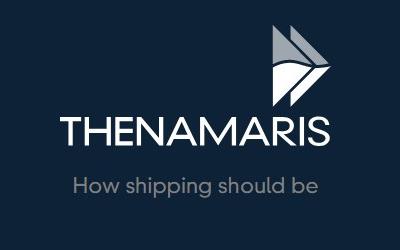Shipping group Thenamaris is implementing a program of permanent renewal of its fleet, selling its oldest ships and investing in new or second-hand modern ships.
At the same time, it is implementing a series of projects to evaluate the alternative solutions that exist today for the green fuels of the future.
In the latest ESG report with data up to the end of 2023, it analyzed the available data, highlighting the pros and cons of each solution.
In 2024, Thenamaris participated with a number of shipping companies in the establishment of a Shipping Center for the Reduction of Air Pollutant Emissions in Athens.
“We firmly believe in the power of cooperation to accelerate the decarbonization of shipping. There is an urgent need to identify and implement safe and practical solutions during the transition to future fuels and technologies. As a founding member of the Maritime Center for the Reduction of Gas Emissions, Thenamaris is committed to acting as an active partner in this initiative,” it said in a statement.
Green Fuels
LNG: In 2019, Thenamaris participated in a joint project with the American Bureau of Shipping, Hyundai and Shell and studied a very large LNG-fueled crude oil carrier. The results of this project, combined with additional knowledge gained from studies conducted by industry organizations, showed that LNG is not a long-term fuel alternative that will substantially reduce greenhouse gas emissions.
Ammonia: Ammonia appears promising as a technically feasible zero-carbon fuel, although it presents a number of safety and technical issues that need to be addressed. The adoption of ammonia as a fuel in the marine industry is still at an early stage, with the first commercial delivery of an ammonia-fueled main engine expected at the end of 2024. We will closely monitor technical and commercial developments.
LPG: LPG is also an alternative fuel, with a lower carbon footprint than the prevailing fuels today, which is particularly applicable to ships that can carry LPG as cargo.
Hydrogen: Hydrogen is also being considered as an alternative fuel. Since hydrogen contains no carbon, it is the cleanest of all fuels and is expected to be the main fuel produced by renewable energy sources such as solar and wind. Hydrogen as a fuel poses a number of challenges, such as the very low temperature required to transfer it to the liquid phase (below -253 degrees Celsius) and the very low density (70.85 kg/m3) that requires significant space in ships for storage.
Methanol: Methanol as an alternative fuel is also under consideration. It has the advantage of being an easy and safe fuel to handle on board ships, is environmentally safe and can be produced by various processes, including directly from green hydrogen and captured CO2.
Other alternative fuels: Alternative fuels with more complex hydrogen-derived hydrocarbons, such as hydrogenated vegetable oil (HVO) and e-MGO, are also being considered, particularly as ‘bridge’ fuels to be used until ships in managed fleets are converted to consume the alternative fuel(s) that will ultimately be chosen.
91 ships and constant renewal
The Thenamaris fleet consists of 91 ships of all types. In particular, it has 51 tankers, 22 bulk carriers, two containerships, eight LNG carriers and eight LPG carriers.
Last week it submitted the highest bid and acquired four modern new bulk carriers (built in 2020 and 2021) from the South Korean Polaris Shipping.
Regarding its shipbuilding program, it has four bulk carriers under construction that will be delivered in 2024 and 2025, as well as 8 tankers that will be delivered in 2025.














